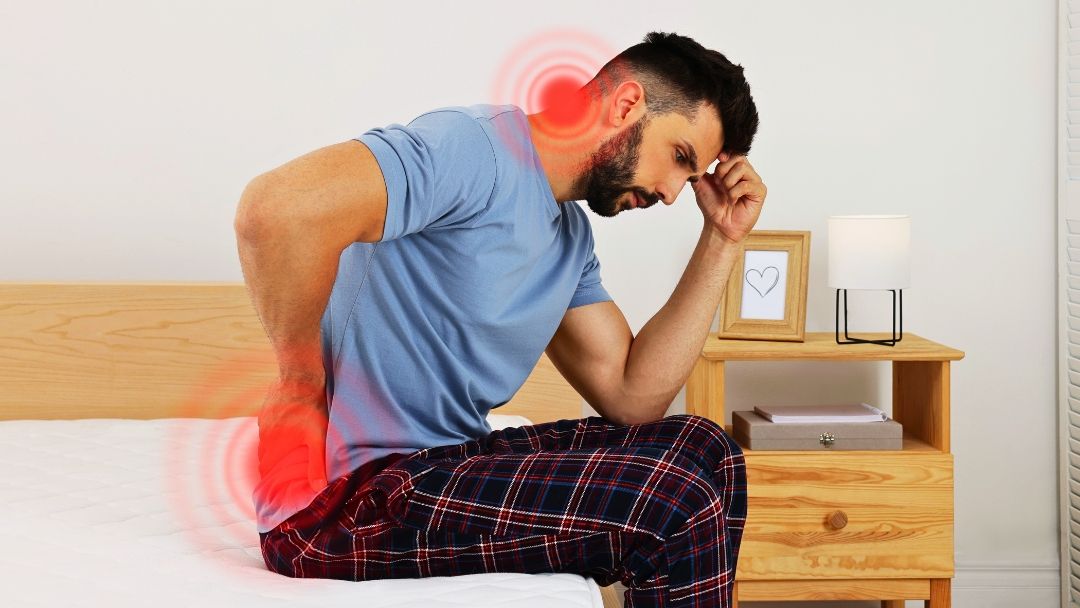Introduction
Think of all the gear you rely on to get through a shift: steel-toed boots, gloves, hard hats, power tools. Now add one more to the list — sleep. Without it, even the best equipment can’t keep you strong, sharp, or safe. Rest isn’t wasted time; it’s the invisible tool that repairs your body, restores energy, and keeps your focus locked in. Skip it, and your performance can drop, your reaction time can slow, and your risk of injury can climb. The better you protect your rest, the more you get out of every hour you put in on the job.
Why Sleep Matters for Labourers
Every time you swing a hammer, carry drywall, or bend rebar, your muscles take on stress and strain. During sleep, your body goes into repair mode:
- Muscle repair and growth – Deep sleep stages trigger the release of growth hormone, which helps repair tiny tears in muscle fibers. This process strengthens your body and prepares you for the next day’s workload.
- Energy restoration – Sleep helps restore glycogen, the energy stored in your muscles. Without it, fatigue sets in faster, making every lift or movement harder.
- Mental focus – A well-rested brain processes information faster, sharpens memory, and improves concentration. On a job site where precision and attention matter, that focus can prevent mistakes.

- Injury prevention – Studies highlight that workers with poor sleep are more likely to suffer accidents. Adequate rest improves reaction times and coordination, keeping you and your crew safer.
For labourers, sleep isn’t just about feeling refreshed—it’s about maintaining the strength, focus, and safety you rely on to do your job well.
Consequences of Poor Sleep
Skipping sleep or getting low-quality rest doesn’t just mean you’ll feel tired. The impact runs deeper:
- Slower reaction times – Being sleep-deprived is similar to working with alcohol in your system. Delayed responses increase the risk of injury when operating tools, climbing ladders, or driving work vehicles.
- Increased risk of accidents – Fatigue is one of the leading causes of workplace incidents in construction. Workers who aren’t rested are more likely to misjudge hazards or make poor decisions.
- Weakened recovery – Without enough sleep, muscles don’t repair fully. Over time, this can lead to chronic pain, stiffness, and decreased strength.

- Long-term health issues – Chronic lack of sleep has been linked to heart disease, diabetes, and reduced immune function. For labourers who already put stress on their bodies daily, poor rest can shorten careers and affect overall quality of life.
Sleep is not just about today’s shift—it’s about your long-term health and staying strong enough to work, provide, and thrive.
Tips for Better Rest
The good news is, you can take steps to improve the quality of your sleep—even with unpredictable hours and physically demanding days. Here are practical strategies tailored for workers like you:
1. Stick to a Routine
Try to keep a consistent sleep and wake time, even on days off. This helps regulate your body’s internal clock, making it easier to fall asleep and wake up feeling rested.
2. Create a Safe, Comfortable Sleep Space
- Keep your room cool and dark
- Block out noise if you live near a busy street or work irregular shifts
- Invest in a supportive mattress and pillow to ease back, neck, and joint pain from physical work
3. Limit Screen Time Before Bed
Phones and TVs give off blue light, which signals your brain to stay awake. Try putting devices away at least 30–60 minutes before bed to give your body time to wind down.

4. Hydration and Nutrition Balance
Drink enough water throughout the day, but limit excessive fluids right before bed to avoid waking up during the night. Heavy meals and alcohol close to bedtime can disrupt your sleep cycle and lower sleep quality.
5. Manage Shift Work Smarter
For workers on rotating or night shifts, sleep can be extra challenging. Try these approaches:
- Use blackout curtains to mimic nighttime when you need to sleep during the day
- Nap strategically before shifts to boost alertness
- Avoid caffeine toward the end of your shift so it doesn’t interfere with sleep later
6. Incorporate Relaxation
Simple practices like stretching, breathing exercises, or a warm shower before bed can relax muscles and signal your body it’s time to rest.
Encouragement and Takeaway
Sleep is not a luxury—it’s the most powerful recovery tool you have. Just as you wouldn’t skip meals or ignore protective equipment, you can’t afford to neglect rest. By making sleep a priority, you give your body the chance to rebuild muscles, restore energy, sharpen your focus, and stay safe on the job.

Think of sleep as an investment. Every hour of quality rest pays you back with more strength for tomorrow’s shift, a lower risk of injury, and a healthier future. For union workers and labourers, this isn’t about luxury—it’s about protecting your health and your career.
So tonight, when you clock out, remember: your shift doesn’t end until your body gets the sleep it needs. Protect your rest, and you’ll not only sleep like a pro—you’ll work, live, and recover like one too.
So tonight, when you clock out, remember: your shift doesn’t end until your body gets the sleep it needs. Protect your rest, and you’ll not only sleep like a pro—you’ll work, live, and recover like one too.
Sources
1. “The Importance of Sleep for Physical Recovery and Performance.” CPAP Pros, 6 Nov. 2023, https://cpappros.ca/the-importance-of-sleep-for-physical-recovery-and-performance.
2. “The Most Important Recovery Tool Is Sleep.” Microcosm Coaching, 23 Apr. 2020, https://www.microcosm-coaching.com/microblog/the-most-important-recovery-tool-is-sleep.
3. “Sleep: The Underestimated Tool for Recovery.” Delaware Fit Factory, 6 Dec. 2017, https://www.delawarefitfactory.com/blog/sleep-the-underestimated-tool-for-recovery.
4. “The Role of Recovery and Sleep in Maximizing Strength and Longevity.” Vail Health, 21 Dec. 2021, https://www.vailhealth.org/news/the-role-of-recovery-and-sleep-in-maximizing-strength-and-longevity.
5. “Why Do We Need Sleep?” Sleep Foundation, 24 Mar. 2023, https://www.sleepfoundation.org/how-sleep-works/why-do-we-need-sleep.
6. “Why Sleep Matters: Rest and Recovery in Construction.” Site Safe New Zealand, 2 Dec. 2019, https://www.sitesafe.org.nz/about/news-and-events/news/why-sleep-matters-rest-and-recovery-in-construction.
